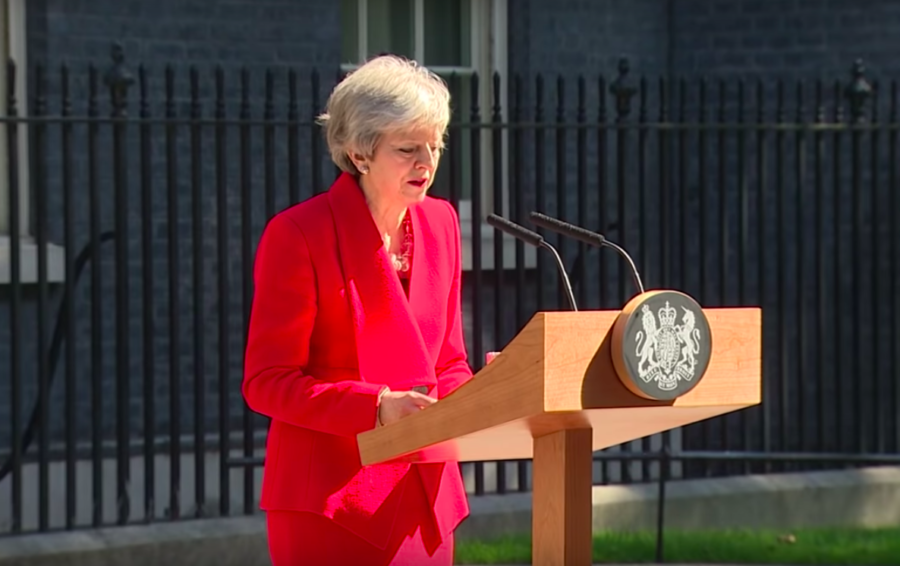Theresa May resigns as British prime minister
Resignation of Theresa May
May 29, 2019
Theresa May announced her resignation as leader of the U.K. Conservative Party and as prime minister Friday.
May’s resignation as party leader will not be effective until June 7, and her resignation as prime minister will not go into effect until her party elects a new leader. The next leader of the party will become the next prime minister.
Kelly Shaw, senior lecturer of political science at Iowa State, said the Brexit (the British exit from the European Union) negotiations were the “nail in her coffin” that led to her resignation.
“The snap election started the ball rolling to her downfall,” Shaw said.
May called a snap general election in 2017. Under British law, if two-thirds of the House of Commons votes in favor of a motion calling for one, an early general election (snap election) may be held before the scheduled five-year term of parliament ends.
When the 2017 election was called, May’s Conservatives had a polling lead upwards of 20%, though they won by 2% on election day and lost their majority in the lower house of parliament.
“It is too early to tell whether this is a symptom of populism, or the end of populism,” Shaw said when asked whether the troubles May experienced passing the Brexit deal portend trouble for President Donald Trump’s re-election bid next year.
Those more likely to vote in favor of Brexit and those more likely to vote for Trump share a demographic profile.
Older people, people in rural areas, people with lower education rates and people not from an ethnic minority background were all more likely to vote in favor of Brexit in the U.K. and for Trump in the U.S. Those demographics are more common in Iowa than in the United States as a whole, and Trump carried the state by 9.5% in 2016.
Shaw spoke to the Daily before the results of last week’s European parliamentary elections were known. At the time, Shaw said that a clear answer to whether populism is on the way out would be determined from the elections.
Though the two centrist blocs in the European parliament suffered losses of seats and vote share, the gains made by far right and populist parties were offset by gains made by the Liberal and Green blocs.
On who the U.K.’s next leader will be, former mayor of London and former British foreign secretary Boris Johnson “has the inside track to win,” Shaw said.







